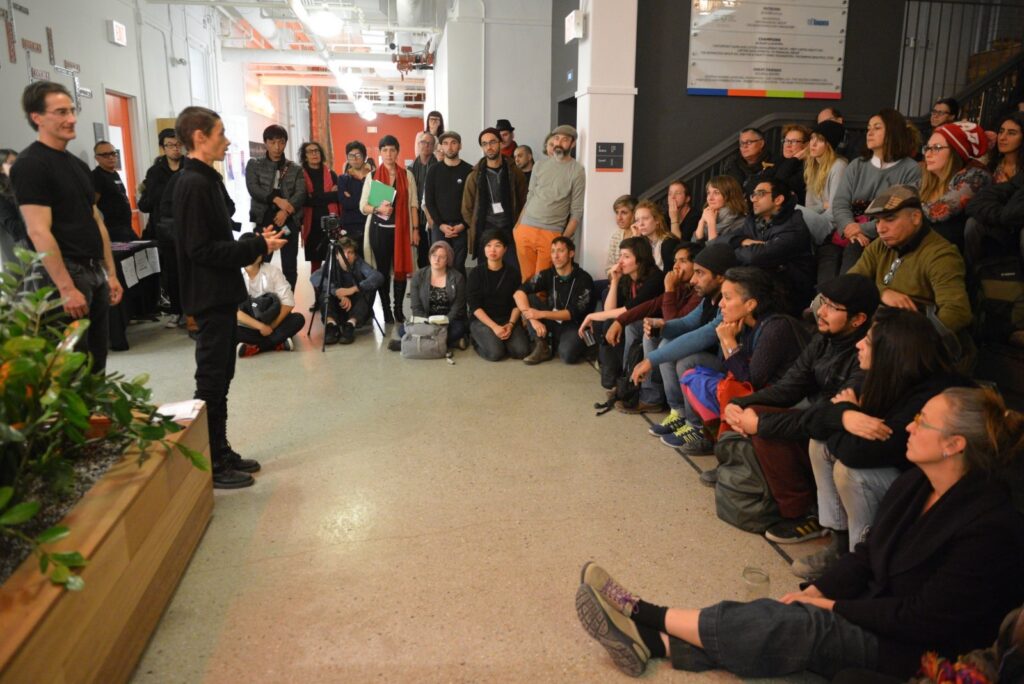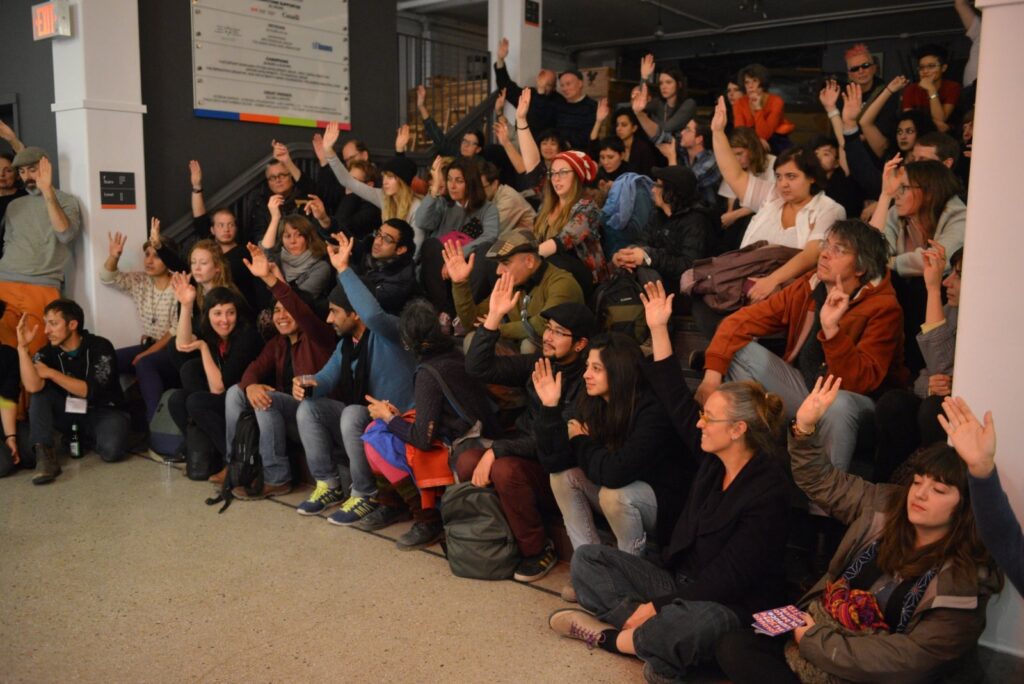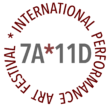By Alison Cooley

claude wittmann has only one egalitarian action on the list which he promised to develop over the course of Radio Equals. Fittingly, the action on his list is exactly what he has been doing all week: Have a conversation about equality while trying to be egalitarian.
wittmann introduces us to the Swiss direct-democratic practice of Landsgemeinde. “Landsgemeinde,” he tells us, translates to “community of the land,” (sticky, he mentions, since the land we are on today is stolen). In Switzerland, Landsgemeinde occured yearly, outside. It was a method of direct democracy involving voting by raised hands on the area’s affairs, policies, expenses. The practice is less commonplace now, only practiced in a few select regions, but occurred regularly across the country into the mid-90s. Until 1991, explains wittmann, it was exclusively the privilege of men, who would demonstrate their citizenship by bringing their bayonets.
wittmann presents us with the options lying before us: will we agree to do this action (have a conversation about equality while being egalitarian)? If so, there’s the potential for each of us to be paid $5 for the act (of the reamaining $200 if wittmann’s saved artist’s fee, after expenses and equipment). Or, two people would converse and each be paid $100. The moment wittmann introduces the compensation, I think immediately of the prisoner’s dilemma. I worry we are being mislead by the process, that somewhere along we will start to argue over this $200. I mistrust, but I follow.
The majority of the voters commit to do the action. Henry counts. Those who do not agree to commit leave the stairwell where we have gathered. We vote on whether to do the action outside of the confines of the festival. The answer is yes. As the vote comes to compensation, an audience member raises a proposal: that claude keep his money. We vote to adopt the proposal, then we vote, in an overwhelming majority, that claude keep the $200. We vote again, on whether everyone or only two will do the action. Majority determines everyone will. Another audience member proposes we vote on what to do with the money. Her proposal is rejected.

The whole thing feels procedural, far from the intimacy of claude and his guest in his little room. But it also feels powerful. Like claude’s conversation, this is just one of many possible (and variously successful) methods for egalitarian action.
Though I leave Landsgemeinde knowing I have participated in democratic commitment, with all the tinges of bureaucratic democracy it brings (perhaps the previous week’s municipal election left me sour), I also leave knowing that Radio Equals has given me tools for the conversation I will have. Tools I have learned, not from voting, but from claude’s manner: his openness, vulnerability, insistent truthfulness coupled with insistent generosity.
I would like, additionally, to commit to a second dispatch from Landsgemeinde: a record of the conversation I am going to have about equality, here, on the blog.
As I prepare for the conversation, my biggest questions are these: What about difference? How, in our bodies and our words, do we equalize the differences between us society insists upon replicating? Gender, class, sexuality, race, mental health, religion, language, ability. How do we resist equalizing these, flattening them until we fail to be varied or care that we are varied? Is it worth trying for the privileged space of assuming we can all be equal in a society that is profoundly inequal? How is it appropriate to defer to authority, or knowledge, or expertise, while maintaining an egalitarian relationship? Do I want to? What about secrets? Am I unequal if I withhold them? What if I cannot be vulnerable enough? What if I need to go to the bathroom mid-conversation? Who are the people in my life I am ready to have this conversation with? Is a stranger better?
My biggest hope is this (and it sounds almost too cheesy, too woo, too sincerely optimistic to make concrete): that if, at the simplest level, in a relation between two humans, we can feel equality in our bodies, then we can know what it feels like when we work towards it in the more complex situations that make up the majority of our interactions. Conversation as micro-utopia.
